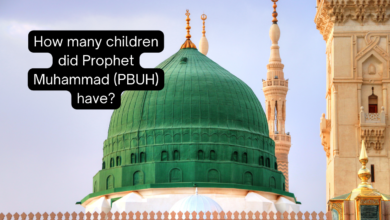Surah Fajr: Reflections on the Transient Nature of Life

Introduction
Surah Fajr, the 89th chapter of the Holy Quran, holds profound wisdom that touches upon the fleeting nature of life. This chapter serves as a reminder to human beings, urging them to contemplate the impermanence of the world around them. As the sun rises and sets, so too does life move through its cycles, teaching us valuable lessons about mortality, the passing of time, and the importance of using our days wisely. In this article, we delve into the verses of Surah Fajr to explore its reflections on the transient nature of life.
The Swearing by the Dawn
The Surah begins with a powerful oath, as Allah swears by the dawn (Fajr) and its magnificence. This swearing-in emphasizes the significance of beginnings and the divine order of the universe. The dawn marks the start of each day, representing the birth of opportunities and possibilities. However, it also hints at the ephemeral nature of these opportunities, urging us to seize the moment and not waste precious time
The Ten Nights
Surah Fajr mentions the significance of “the ten nights,” interpreted by some scholars as the first ten days of the Islamic month of Dhul-Hijjah. These days hold immense importance for Muslims worldwide, as they coincide with the Hajj pilgrimage and the celebration of Eid al-Adha. Beyond their religious connotation, these ten nights symbolize the passage of time, reminding us that even these auspicious moments eventually pass, and life moves on.
The City of Pillars
In verse 3, Surah Fajr speaks of the city with “pillars.” Scholars have various interpretations of this city, but one popular understanding is that it refers to the ancient city of Thamud. The city’s inhabitants had transgressed against divine laws, and they faced a devastating punishment for their arrogance and sins. The mention of this city serves as a cautionary tale, warning us that no matter how grand or powerful a civilization may seem, it is not immune to the laws of time and decay.
The Rejecters of Truth
The Surah then speaks about the “rejecters of truth,” referring to those who reject the guidance of Allah and indulge in wrongdoing. They arrogantly believe they are beyond accountability and are heedless of their actions. However, the transient nature of life eventually catches up with them, as history has shown time and again that arrogant civilizations and individuals are destined to fall.
The Severe Day
The Surah warns about the “Severe Day,” which is the Day of Judgment. This day signifies the end of this transient life, where all will be held accountable for their deeds. It serves as a reminder that even though life may seem fleeting and uncertain, there is an ultimate reckoning where justice will prevail, and every soul will be judged for their actions.
Reflection on the Past Nations
Throughout Surah Fajr, Allah recounts the destruction of past nations as examples for us to reflect upon. The stories of ‘Ad, Thamud, and Pharaoh illustrate how once-great civilizations crumbled due to their arrogance, disobedience, and rejection of divine guidance. These accounts remind us that no civilization or individual is exempt from the consequences of their actions and the transient nature of life.
The Self-Aware Soul
Surah Fajr speaks of the self-aware soul, the one that recognizes its purpose and is conscious of its actions. This self-awareness is a guiding light through the transient journey of life, allowing individuals to understand the consequences of their choices and strive for righteousness.
Conclusion
Surah Fajr stands as a timeless reminder of the transient nature of life, urging us to reflect on the impermanence of worldly pleasures and the ultimate purpose of our existence. Through powerful oaths, cautionary tales of past civilizations, and the promise of an eventual judgment, the Surah compels us to use our time wisely and seek divine guidance in all our endeavors.
In today’s fast-paced world, where distractions abound, the lessons from Surah Fajr are more relevant than ever. Embracing the fleeting nature of life can help us appreciate each moment, cherish our relationships, and seek ways to make a positive impact on the world around us. By living with mindfulness and purpose, we can find solace in the face of life’s uncertainties and work towards a meaningful existence that transcends the limitations of time. Surah Fajr serves as a guiding beacon, illuminating the path toward a life well-lived and a soul at peace.






